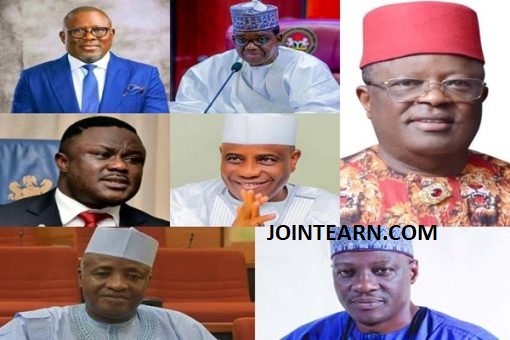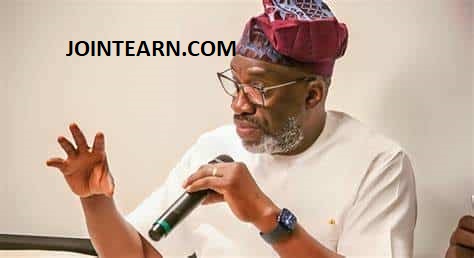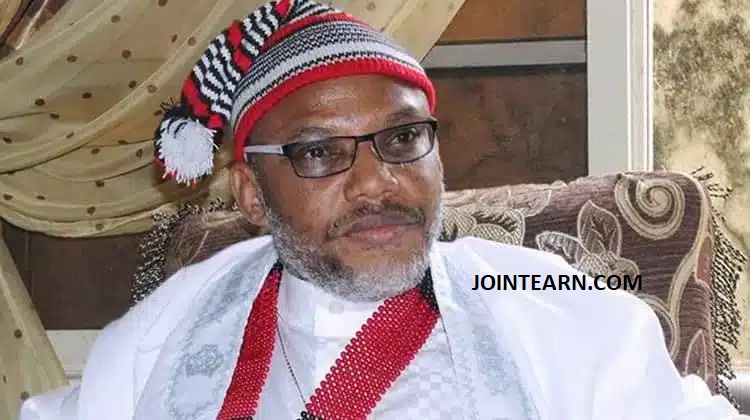In recent years, Nigeria’s political landscape has witnessed significant shifts as several sitting governors of the People’s Democratic Party (PDP) have defected to the All Progressives Congress (APC). These defections have had profound implications for both parties and the nation’s political dynamics.
1. Ali Modu Sheriff (Borno State)
Ali Modu Sheriff served as the Governor of Borno State from 2003 to 2011. Initially a member of the All Nigeria People’s Party (ANPP), he joined the APC in 2013. However, in 2014, Sheriff defected to the PDP and became the party’s National Chairman. In April 2018, he returned to the APC, citing a desire to contribute to national development and support the administration of President Muhammadu Buhari.
2. Murtala Nyako (Adamawa State)
Murtala Nyako was the Governor of Adamawa State from 2007 to 2014. He was a member of the PDP before defecting to the APC in 2013, along with five other governors known as the “G-7.” Nyako’s defection was part of a broader movement within the PDP, driven by disagreements with the party’s leadership.
3. Rochas Okorocha (Imo State)
Rochas Okorocha served as the Governor of Imo State from 2011 to 2019. Initially a member of the All Progressives Grand Alliance (APGA), he joined the APC in 2013. Okorocha’s defection was part of his strategy to align with the then-ruling party and strengthen his political influence.
4. Bello Matawalle (Zamfara State)
Bello Matawalle was the Governor of Zamfara State from 2019 to 2023. He was elected on the platform of the PDP but defected to the APC in June 2021. Matawalle cited the need for a united front to tackle the state’s security challenges as a primary reason for his defection.
5. Abdulfatah Ahmed (Kwara State)
Abdulfatah Ahmed served as the Governor of Kwara State from 2011 to 2019. He was a member of the PDP before defecting to the APC in 2013, ahead of the 2015 general elections. Ahmed returned to the PDP in 2018 but later rejoined the APC, reflecting the fluid nature of political affiliations in Nigeria.
6. Musa Kwankwaso (Kano State)
Musa Kwankwaso was the Governor of Kano State from 1999 to 2003 and again from 2011 to 2015. He initially joined the PDP but later defected to the APC in 2013, along with other members of the G-7. Kwankwaso’s defection was driven by ideological differences and a desire to influence national politics.
7. Aminu Tambuwal (Sokoto State)
Aminu Tambuwal served as the Governor of Sokoto State from 2015 to 2023. He was initially a member of the PDP but defected to the APC in 2018, ahead of the 2019 general elections. Tambuwal’s defection was part of a broader realignment of political forces in the country.
8. Orji Uzor Kalu (Abia State)
Orji Uzor Kalu was the Governor of Abia State from 1999 to 2007. He was a founding member of the PDP but fell out with the party’s leadership over various issues. Kalu defected to the Progressive Peoples Alliance (PPA) and later returned to the APC, where he has since been active in national politics.
9. Ikedi Ohakim (Imo State)
Ikedi Ohakim served as the Governor of Imo State from 2007 to 2011. He was a member of the Progressive Peoples Alliance (PPA) before joining the PDP. Ohakim’s political journey reflects the shifting allegiances and realignments within Nigeria’s political parties.
10. Boni Haruna (Adamawa State)
Boni Haruna was the Governor of Adamawa State from 1999 to 2007. He was a member of the PDP before defecting to the Action Congress (AC) in 2007. Haruna’s defection was part of the broader political realignment in the country at the time.
Conclusion
The defections of these governors from the PDP to the APC underscore the dynamic and often unpredictable nature of Nigerian politics. These shifts have not only altered the balance of power between the two major political parties but have also influenced the political trajectories of the states involved. As Nigeria approaches future elections, the implications of these defections will continue to shape the nation’s political landscape.












